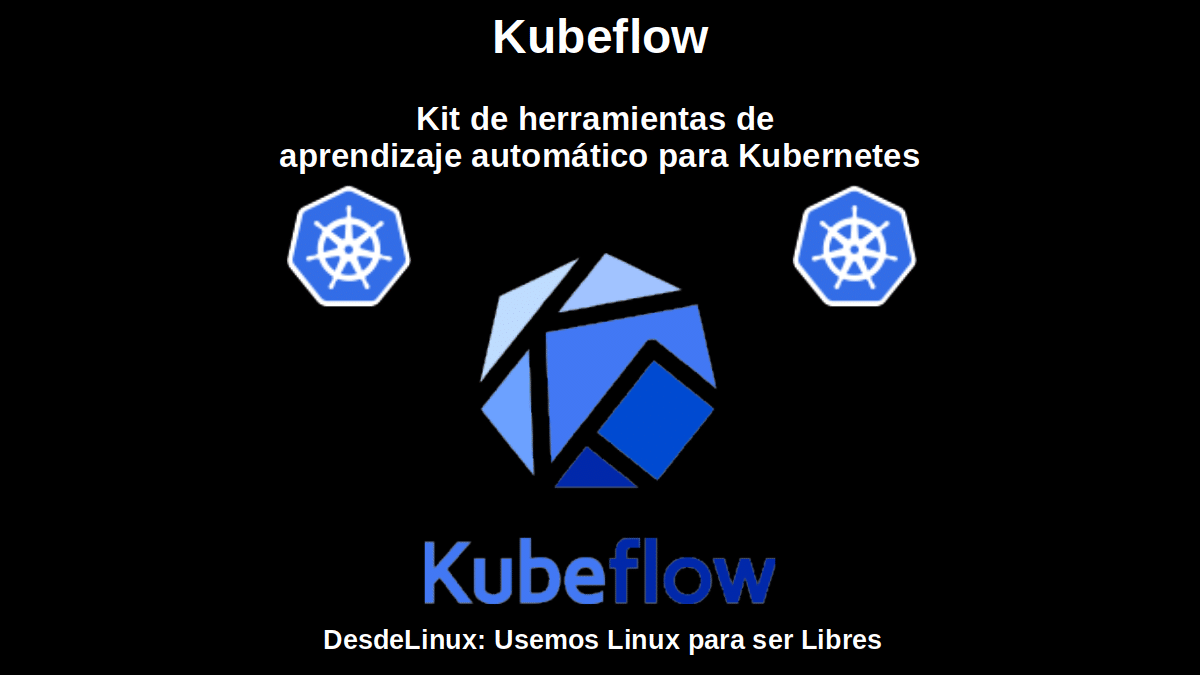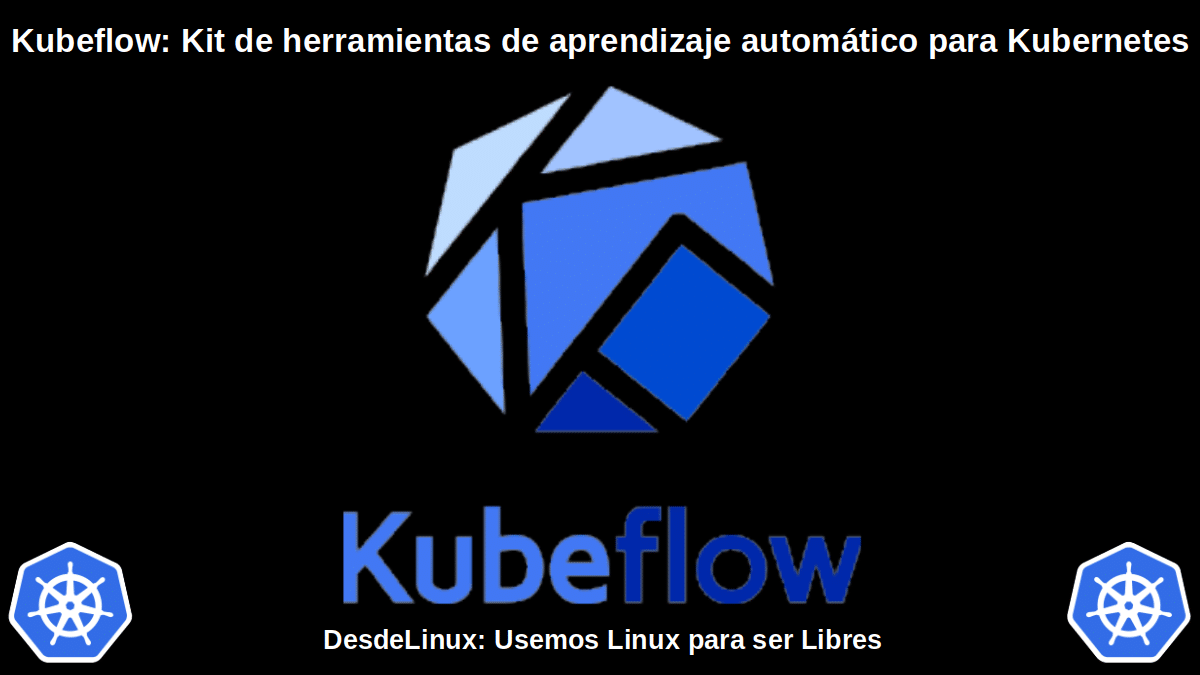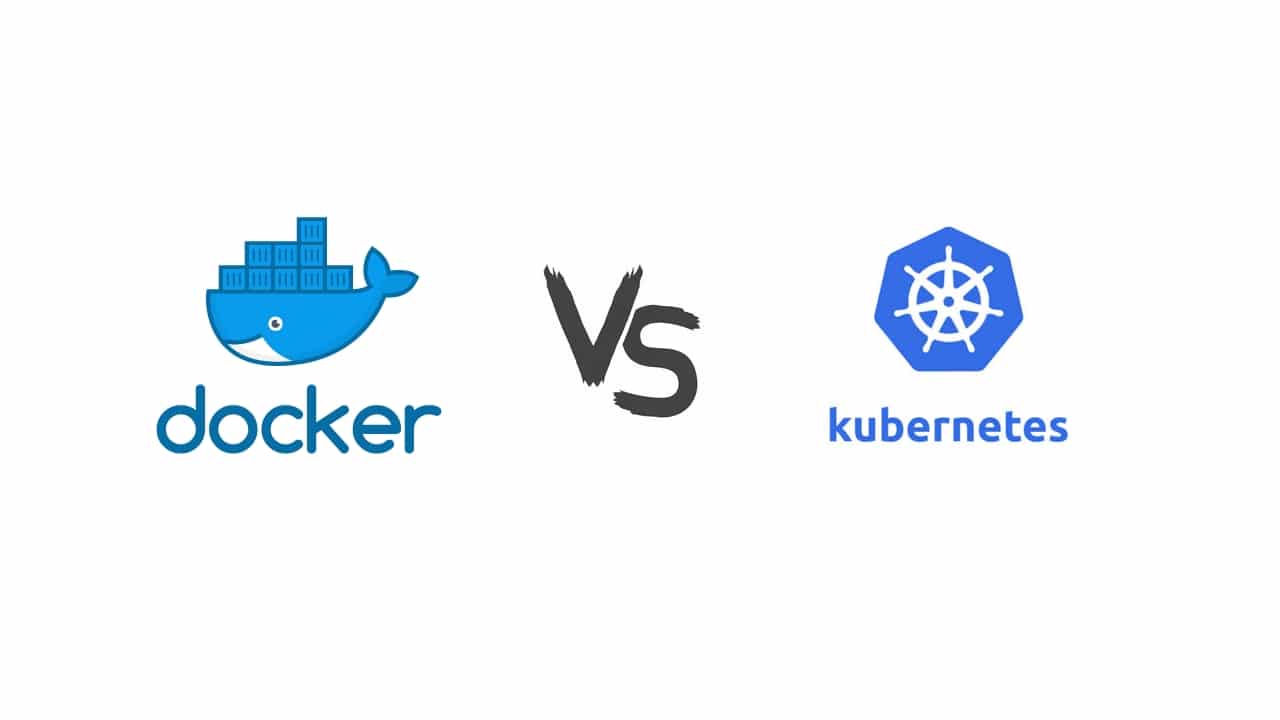
Kubeflow: Machine Learning Toolkit for Kubernetes
Our post today will deal with the field of Automatic Learning (Machine Learning / ML). Specifically about an open source application called "Kubeflow", which in turn, works on Kubernetes. Which, as many of you already know, is an open source system for automating the deployment, scaling and handling of containerized applications.
"Kubeflow" despite being currently available under the stable version 1.2, as it appears in its official official website and GitHub, in its official Blog, it is already commented on the next version 1.3. That is why today, we will delve into this application.

Cognitive Toolkit: Open Source Deep Learning SW
And as usual, for those always eager to delve into a topic read, we will leave the following links to related previous posts for you to explore once this post is finished:
"Microsoft's Cognitive Toolkit (formerly called CNTK) is a deep learning toolkit
(Machine Learning)de«Código Abierto»with enormous potential. It is also free, easy to use, and commercial-grade quality that allows you to create deep learning algorithms capable of learning at a level close to that of the human brain." Cognitive Toolkit: Open Source Deep Learning SW




Kubeflow: An Open Machine Learning Project
What is Kubeflow?
According to his Official website, this open project is defined as follows:
"It's a project dedicated to making machine learning (ML) workflow deployments on Kubernetes simple, portable, and scalable. It is not intended to recreate other services, but to provide an easy way to deploy the best open source systems for ML across various infrastructures. So anywhere Kubernetes runs, Kubeflow can run."
While, on your site at GitHub, briefly add the following:
"Kubeflow, is the native platform in the cloud for machine learning operations: pipelines, training and deployment."
From this, it can be easily deduced that, the main objective of "Kubeflow" is
"Make machine learning (ML) model scaling and deployment as easy as possible, letting Kubernetes do what it knows how to do: Easy, repeatable, portable deployments across a diverse infrastructure, microservices deployment and management loosely coupled and scale based on demand."
Characteristics?
Among the remarkable characteristics of "Kubeflow" We can mention the following:
- Includes services to create and manage interactive Jupiter notebooks. Allowing to customize the deployment of the same and other computer resources to adapt them to the needs of data science. Thus, making it easy to experiment with local workflows, and then deploy them in the cloud when necessary.
- Provides a custom TensorFlow training job operator. Which can be used to train an ML model. In particular, the Kubeflow job operator can handle distributed TensorFlow training jobs. Allowing the power to configure the training controller to use CPUs or GPUs, and thus to adapt to various cluster sizes.
- Supports a TensorFlow Serving container for exporting trained TensorFlow models to Kubernetes. Additionally, Kubeflow is also integrated with Seldon Core, an open source platform for deploying machine learning models on Kubernetes, and NVIDIA Triton Inference Server to maximize GPU utilization when deploying ML / DL models at scale.
- Includes Kubeflow Pipelines technology. Which is a comprehensive solution for deploying and managing end-to-end ML workflows. Allowing for fast and reliable experimentation, for scheduling and comparing runs, and reviewing detailed reports on each run.
- Offers a multi-framework foundation. Since, in addition to working very well with TensorFlow, it will soon have support for PyTorch, Apache MXNet, MPI, XGBoost, Chainer, and more.
More up-to-date information on "Kubeflow" can be obtained directly on your Official blog.
What is Kubernetes?
Given the, "Kubeflow" works on "Kubernetes", it is worth specifying according to your own Official website that the latter is the following:
"Kubernetes (K8s) is an open source platform for automating the deployment, scaling, and management of containerized applications."
And in case of, wish to deepen on "Kubernetes" You can explore our previous and latest related publications below:



Conclusion
We hope this "useful little post" about «Kubeflow», an interesting and modern open source project in the field of deep learning, made to increase the reach of the open source platform «Kubernetes »; is of great interest and utility, for the entire «Comunidad de Software Libre y Código Abierto» and of great contribution to the diffusion of the wonderful, gigantic and growing ecosystem of applications of «GNU/Linux».
For now, if you liked this publicación, Do not stop share it with others, on your favorite websites, channels, groups or communities of social networks or messaging systems, preferably free, open and / or more secure as Telegram, Signal, Mastodon or another of Fediverse, preferably.
And remember to visit our home page at «DesdeLinux» to explore more news, as well as join our official channel of Telegram from DesdeLinux. While, for more information, you can visit any Online library as OpenLibra y jedit, to access and read digital books (PDFs) on this topic or others.